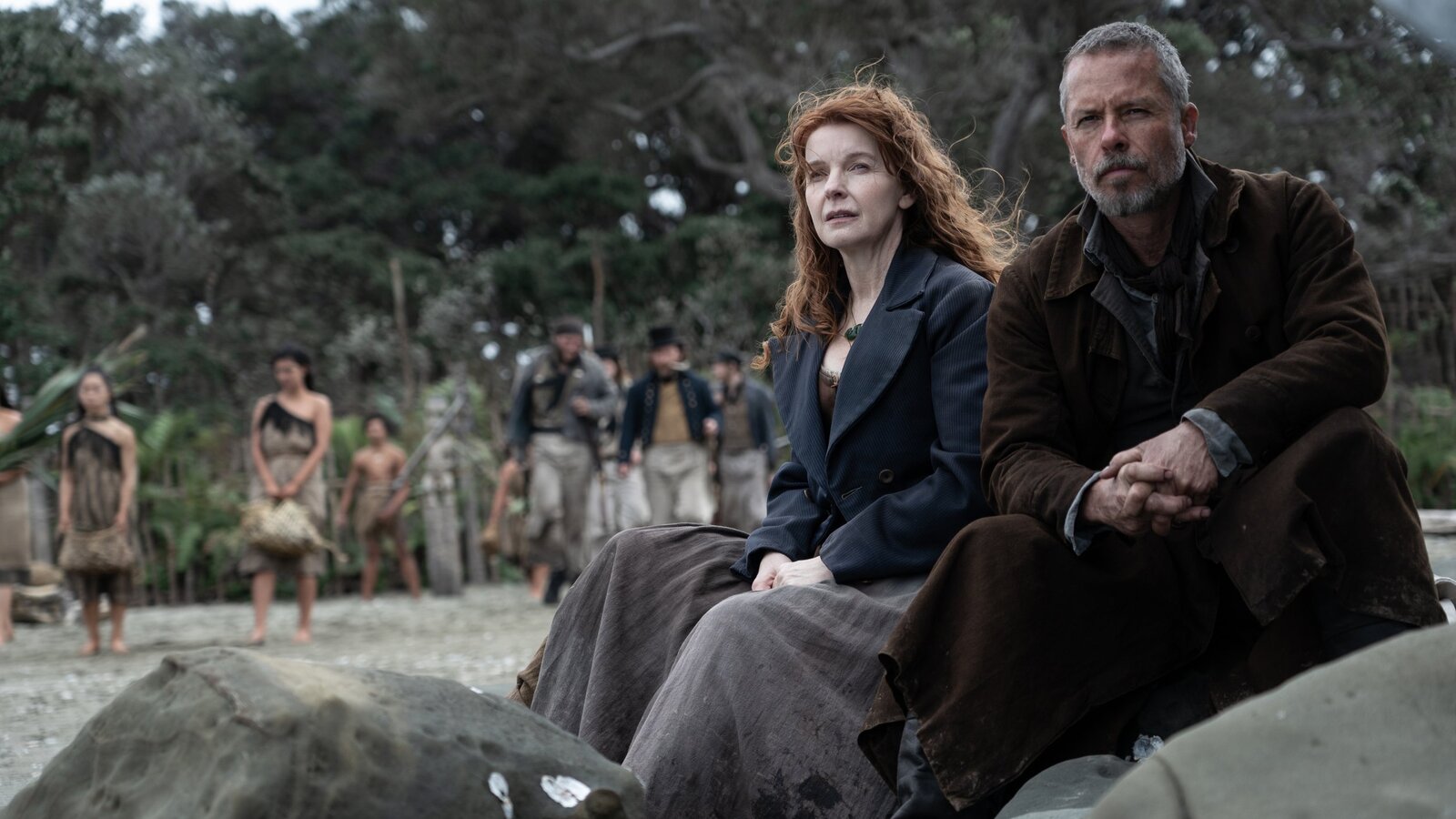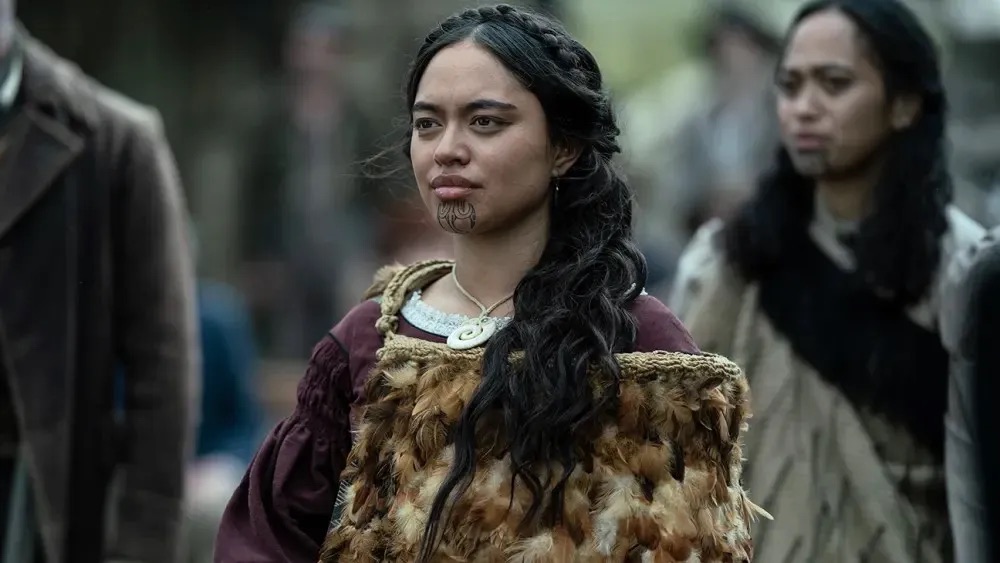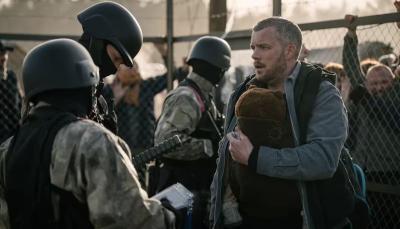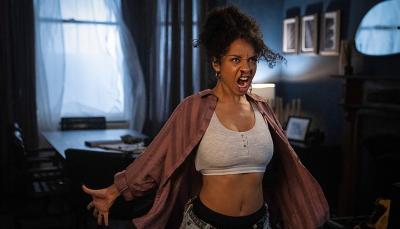'The Convert's Historical Drama Fails to Center Its People
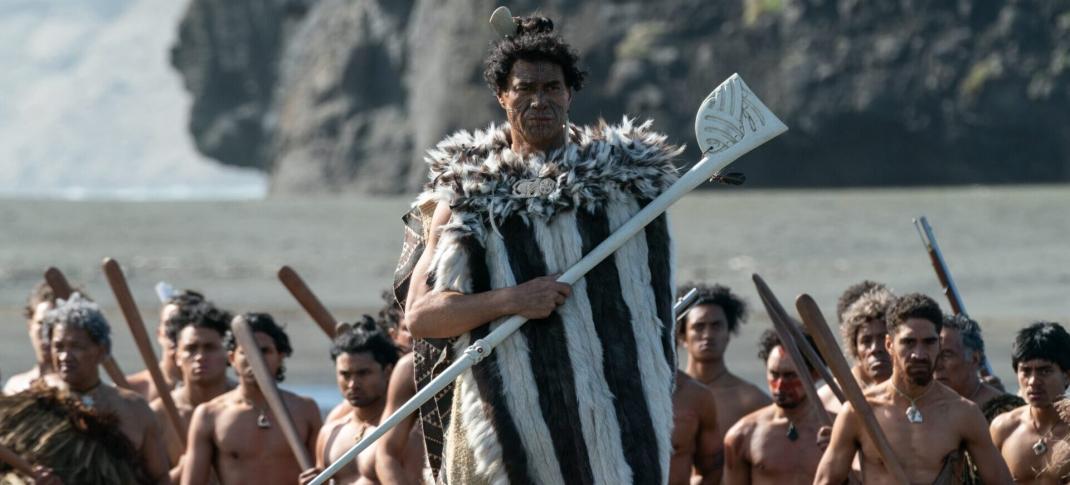
Te Kohe Tuhaka stars in 'The Convert'
Brouhaha Entertainment
A pre-colonial expansion through tribal Māori land becomes a personal crisis for an English lay preacher setting up a diocese in a small settlement in The Convert, a robust but unsophisticated historical drama set in 1830 Aotearoa (the Māori name for New Zealand). The film, directed by acclaimed Kiwi director Lee Tamahori (Once Were Warriors), shows a lot of the right instincts about depicting the years before Māori tribes were upturned by settler violence but gets stuck in the usual traps of fiction about Indigenous history from a white perspective: the personal strife of the conflicted colonist takes a more central position than Indigenous drama.
Even when the feuding Māori tribes, whose divisions are worsened with the introduction of Western weaponry and religion, lead whole sequences of the story, every cut back to preacher Thomas Munro (Guy Pearce) spectating thorny history unfold feels like a misstep, as our attention is directed towards wondering how it affects his spiritual and moral journey.
Similar to other New Zealand historical fiction, like Jane Campion’s Oscar-winning The Piano, there’s compelling material in Britain's underclass going from alienation by the empire towards sincere assimilation with Māori people, but Tamahori’s film lacks the poetry and sharpness of Campion’s, and pales in comparison to other works about the historical intersections of the spiritual and the colonial, like Terence Mallick’s The New World or Martin Scorsese’s Silence.
Admittedly, it’s not fair to criticize a film for not being as good as ones made by cinema’s enduring masters, and The Convert mostly sustains itself on a committed cast and a narrative that rarely stays fixed in one place. Having left a military post and turned to God, Munro finds his guilty conscience unsettled – which isn’t helped by how little respect is given to his holy charge by his new community, the colonial town of Epworth. Here, bigotry against Māori, Catholics, and those deemed criminal by the Crown – like multilingual widow Charlotte (Jacqueline McKenzie) – feel the edge of Britain’s colonial blade digging into them at all times.
The portion of The Convert set in Epworth most effectively delivers the prickly tension that frontier period dramas thrive on – Munro’s well-intended efforts to ingratiate a young, grieving Māori woman Rangimai (Tioreore Ngatai-Melbourne) into the settlement community only reveals the violent nature of the most mundane settlement values. Ngatai-Melbourne has an intense physical and vocal presence in her scenes, wielding a poise and intensity that’s often substituted for wailing against a brutality that only she can recognize – after all, only she has experienced the tribal life that’s being stripped away.
It’s also here that Pearce gets the most out of his one-note character – his sympathy for mistreated Māori people despite not understanding their inner world or community gives Munro an unsteady but charged quality. It’s way more effective than when Tamahori sits the camera down in front of Pearce to let him deliver a monologue about being asphyxiated with guilt for his military violence. Pearce gives it his all, but it feels too load-bearing a dramatic device and can’t convince us of a tangible spiritual transformation happening within our lead character.
There’s very little religion or preaching in The Convert – it’s not that kind of film. Instead, it tries to expose how performative and shifty ideology was in New Zealand’s pre-colonial days, something we can recognize from movies set in America’s Old West or further afield, like the recent Danish-Icelandic drama Godland, which follows a colonial Danish priest at war with a natural world that’s unresponsive to his holy messages. But The Convert falters most in its visuals – Tamahori shoots his films with too little energy or style to evoke something profound or transportive in both the settler and tribal spheres Munro shifts between.
The Convert spends a lot of time leading up to a vicious conflict brewing between two Māori tribes, fuelled by opportunistic musket sales that push chiefs Maianui (Rangimai’s father, played by Antonio Te Maioha) and the aggressive Akatārewa (Lawrence Makoare) towards violent collision. It’s a clear example of how imperial meddling disintegrated tribal unity even before their lands were claimed as colonies; however, the characters closest to the intertribal fighting feel too thinly sketched out.
We understand this is a historically significant conflict, but Tamahori shoots the eventual battle too much like, well, your average battle scene rather than a tragic, symbolic turning point for Māori people. Like many things in Tamahori’s film, The Convert treats the fallout of foreign intervention without the rigor it requires, leaving us with an adequate but unrealized exploration of a tumultuous period in Aotearoan history.
The Convert is playing in limited release in U.S. theaters and is available as a streaming rental for those cities where it hasn't opened.

